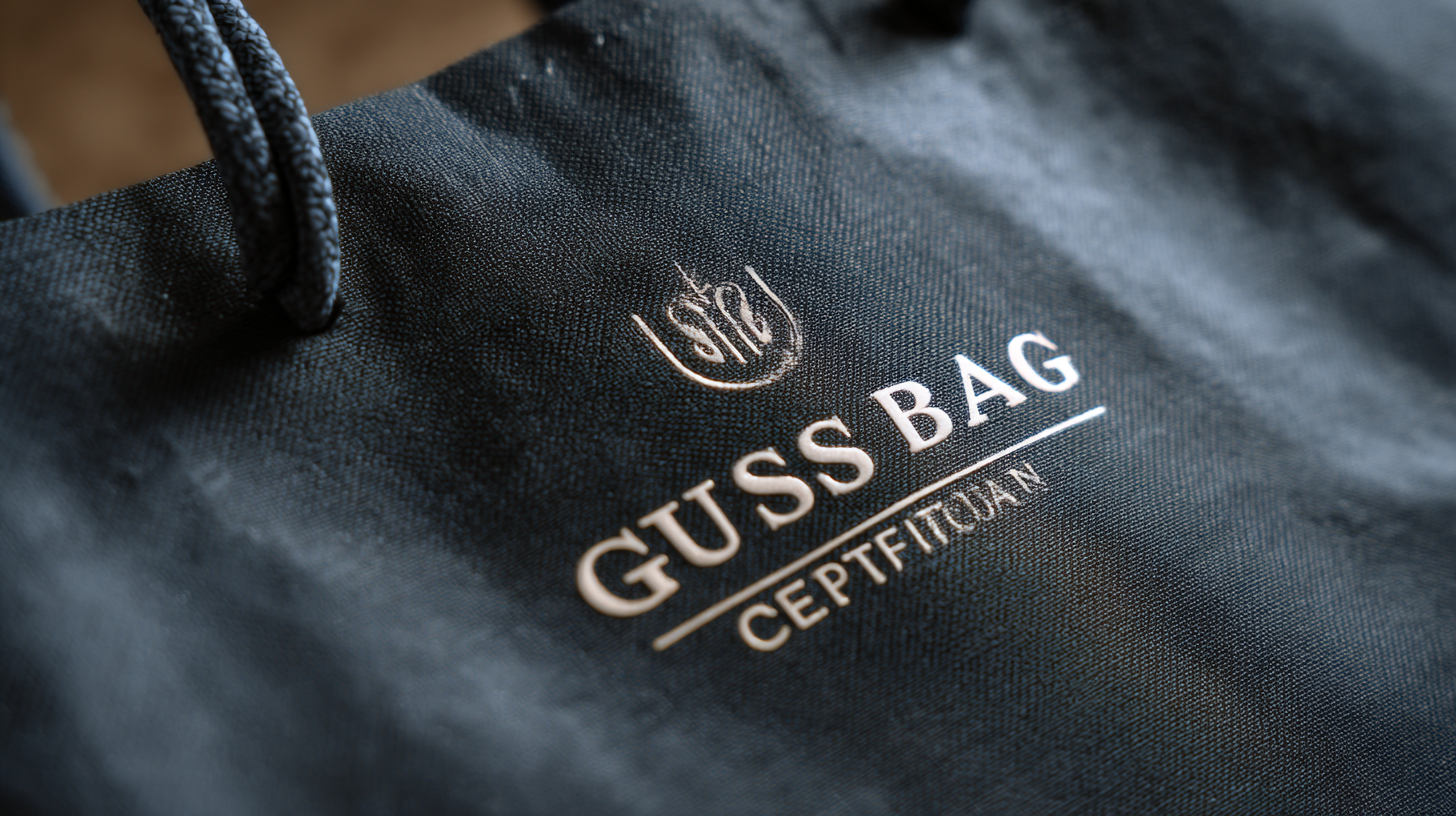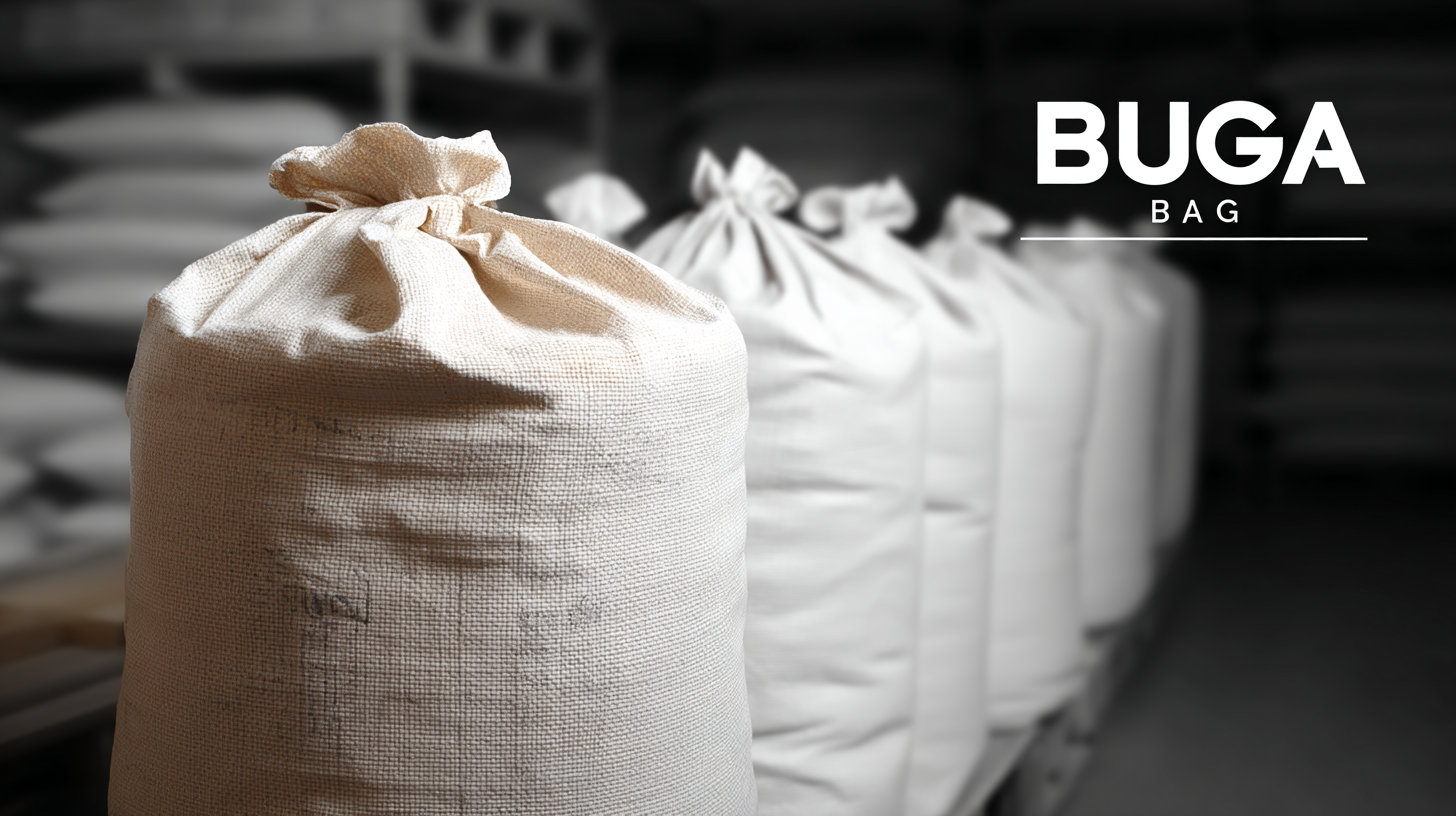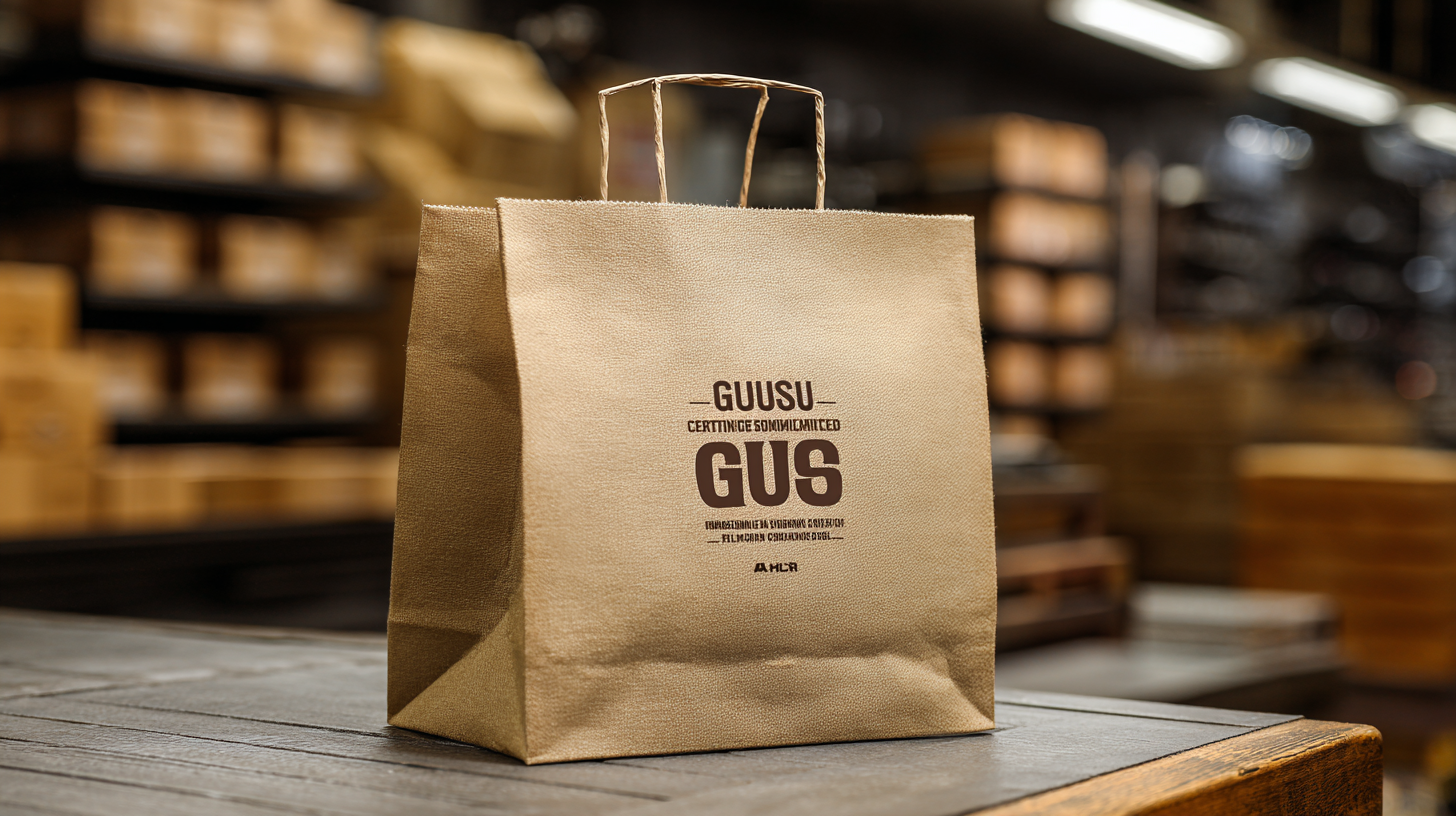

In today's competitive global marketplace, understanding export certifications has become essential for manufacturers aiming to achieve market success. The gusset bag, known for its versatility and ability to efficiently store and display products, is increasingly favored across various industries. According to a recent report by Smithers Pira, the global market for flexible packaging, which includes gusset bags, is projected to reach $450 billion by 2025, driven by a surge in e-commerce and consumer demand for convenience. In this context, China's manufacturing sector, recognized for its commitment to quality, has positioned itself to gain international respect and market share. By adhering to stringent export certification standards, companies can not only enhance their credibility but also tap into lucrative markets abroad, ensuring their gusset bags are not just products but vital tools for success.

Export certifications play a crucial role in the success of best gusset bags in international markets. These certifications not only ensure compliance with import regulations but also enhance product credibility. A study by the Global Trade Analysis Project indicates that proper export documentation can increase market acceptance by up to 30%. This highlights the need for manufacturers to understand and obtain relevant certifications that meet safety and quality standards.
Tips: When applying for export certifications, always check the specific requirements of your target market. Regulations can vary significantly from one country to another. Ensure that your gusset bags meet both international and local standards, including food safety certifications if applicable. Keeping detailed documentation and records can streamline the certification process.
Moreover, certified products often enjoy reduced tariffs and easier access to foreign markets, leading to enhanced competitiveness. According to a report from the International Trade Centre, companies with export certifications report a 20% increase in sales compared to those without. Manufacturers of gusset bags should prioritize obtaining these certifications to capitalize on new opportunities and build robust relationships with global partners.
Tips: Consider collaborating with a trade certification consultant to navigate complex regulations efficiently. This partnership can save time and resources, allowing you to focus on production and innovation.
When venturing into the global market, understanding the certifications required for exporting products, such as gusset bags, is crucial. These certifications not only help to comply with international regulations but also assure retailers and consumers of product quality and safety. Among the most sought-after certifications are ISO standards, which encompass quality management systems and environmental management. Achieving ISO certification can significantly enhance a business's credibility, making it easier to penetrate various markets.
In addition to ISO certifications, companies should be aware of specific regulations that vary by region. For instance, products sold in the European Union may require CE marking, indicating compliance with health, safety, and environmental protection standards. Similarly, exporting to North America might necessitate compliance with FDA regulations, particularly for packaging materials that interact with food products. By obtaining these essential certifications, businesses manufacturing gusset bags can confidently enter global markets, ensuring their products meet necessary legal and safety benchmarks while gaining a competitive edge.
| Certification Name | Description | Region | Validity Period | Cost |
|---|---|---|---|---|
| ISO 9001 | Quality Management Systems | Global | 3 years | $1,000 |
| FDA Approval | Regulation for Food Contact Materials | United States | Indefinite (Review Required) | $2,500 |
| CE Marking | European Conformity | European Union | Varies | €1,500 |
| BPA-Free Certification | No Bisphenol A in Product | North America | 3 years | $800 |
| REACH Compliance | Registration, Evaluation, Authorisation, and Restriction of Chemicals | European Union | N/A | Varies |
Export certifications serve as a critical component in streamlining export processes, particularly for specialized products like gusset bags. According to a report by the International Trade Centre, over 80% of exporters encounter delays due to inadequate documentation. By securing proper certifications, companies not only mitigate these delays but also enhance their market access. Certifications can vary by region and product, requiring exporters to stay well-informed about the regulations applicable to their target markets.
For instance, the Food and Drug Administration (FDA) and other regulatory bodies often necessitate specific certifications for packaging used in food industries. A study from Deloitte highlighted that businesses with robust compliance measures, including certifications, experienced 30% faster time-to-market compared to those without. This efficiency not only boosts revenues but also builds consumer trust, which is vital in competitive markets. As best practices suggest, investing in proper export certifications is a strategic move that can significantly elevate a company’s market presence and operational efficiency.

Navigating compliance is crucial for best gusset bag manufacturers aiming to penetrate international markets. Export certifications not only affirm product quality and safety but are also integral in meeting regulations imposed by various countries.
According to a report by Smithers Pira, the global flexible packaging market, which includes gusset bags, is projected to reach $300 billion by 2024. This growth underscores the importance of adhering to compliance standards, as non-compliance can lead to significant financial losses and reputational damage.
For manufacturers, understanding the specific certifications required for their target markets is key. For example, in the European Union, compliance with the REACH regulation is mandatory, ensuring that products do not contain harmful substances. Additionally, the ISO 9001 certification is often a prerequisite for suppliers looking to establish credibility.
Data from Market Research Future indicates that flexible packaging with proper certifications can achieve 20% higher market acceptance, reinforcing the correlation between compliance and market success. By focusing on these certifications, manufacturers can enhance their competitive edge and build trust with customers worldwide.
In today's competitive market, certifications play a crucial role in enhancing consumer trust and driving sales growth, particularly in the realm of natural products such as gusset bags. As consumers become increasingly conscientious about the origins and impacts of their purchases, certifications serve as a symbol of quality and ethical standards. When a product carries recognized certifications, it not only validates its safety and sustainability but also signals to consumers that the brand is committed to responsible practices. This transparency builds trust and encourages loyal patronage.
Moreover, the connection between certifications and sales growth cannot be overstated. With statistics consistently showing an uptick in demand for certified products—such as those in the natural cosmetics market projected to reach USD 76.5 billion by 2033—brands that invest in comprehensive certification processes are likely to see a substantial return on investment. Ethical certifications and clear messaging around these credentials can significantly impact purchasing decisions, especially in markets where consumers actively seek out ethically produced goods. In this evolving landscape, obtaining the right certifications is not just about compliance; it's a strategic move toward securing market success.
